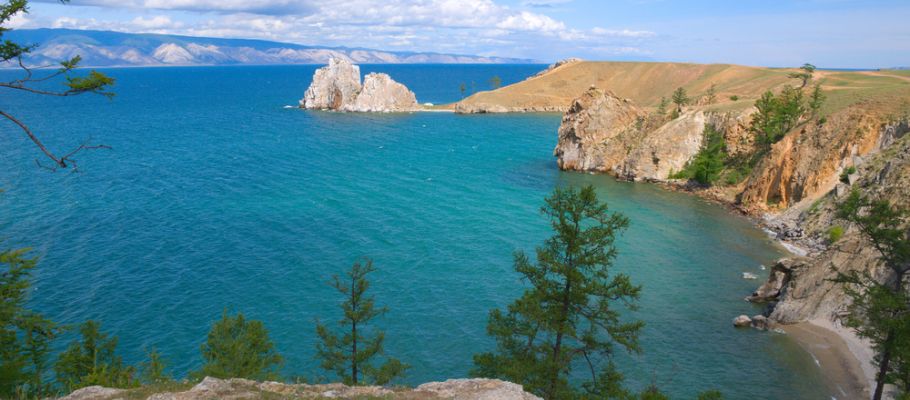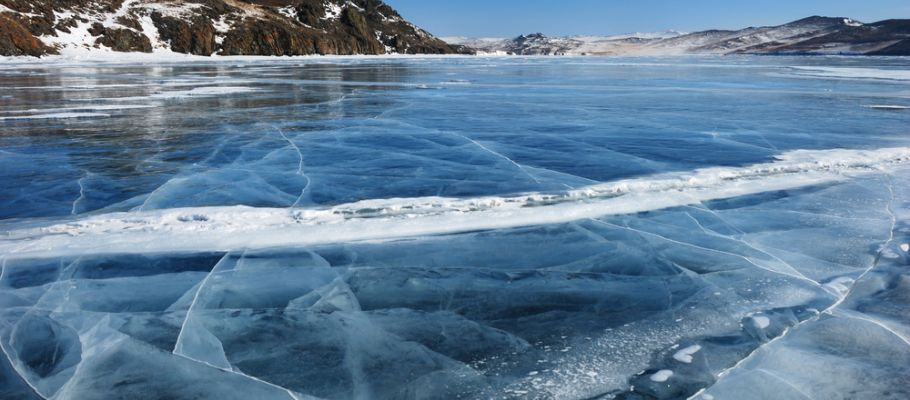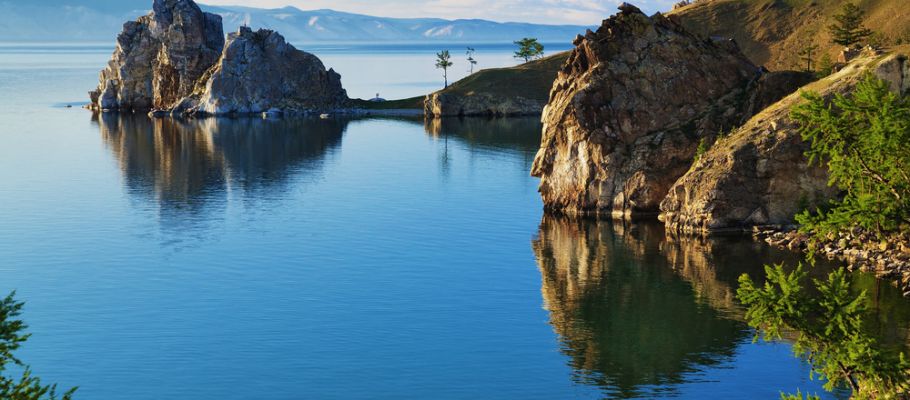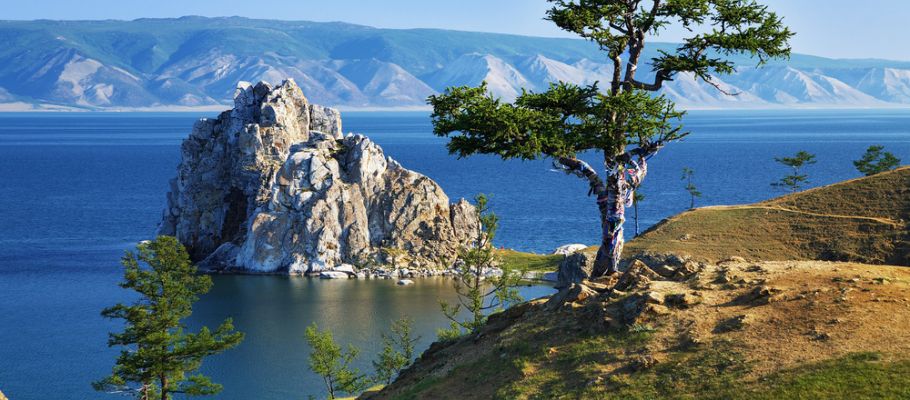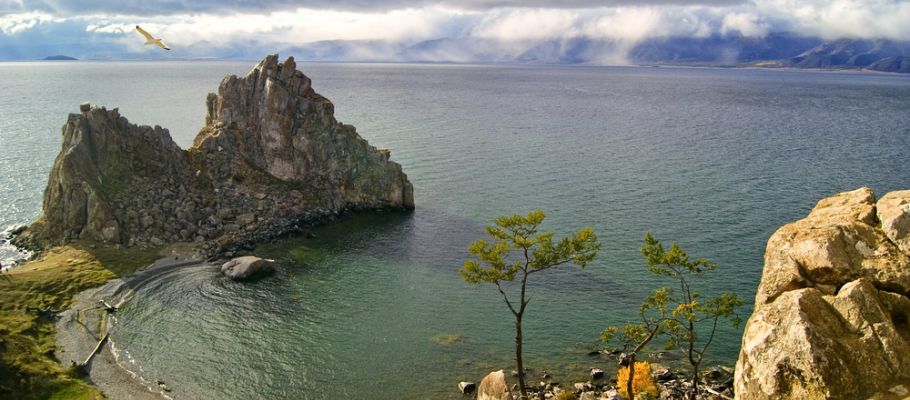Lake Baikal is a lake located in the southern region of Russian Siberia. Lake Baikal is a rift lake created out of fault shifts. Rift lakes are usually deep and surrounded by steep mountains. As as rift lake, it has the typical crescent shape.
Lake Baikal is a fresh water lake, and the lake was declared a UNESCO World Heritage Site in 1996. Lake Baikal is part of the Baikal Rift Zone
Lake Baikal was declared one of the Seven Natural Wonders of Russia on June 11, 2014. Visitors and potential travelers should discover and learn more about what makes the Lake Baikal one of the Seven Natural Wonders of Russia.
What makes Lake Baikal a natural wonder of Russia?
Statistically speaking, Lake Baikal has the largest volume of water in the world. Baikal is the deepest lake in the world reaching a depth of 5,387 feet (1,642 m). It is considered one of the clearest lakes in the world and ranks 7th based on surface area.
Furthermore, it has the largest surface level of any lake in Asia and Europe. The bottom of the lake extends 3,893 feet (1,186 m) below sea level. There are over 320 rivers feeding the lake.
Aesthetically speaking, Lake Baikal is completely surrounded by mountains. There are 27 islands splattered across the lake with the largest extending 45 miles (72 km) across. This island is the third largest lake bound island in the world. Additionally, Lake Baikal is home to 1,550 species of wildlife and 1,085 species of flora with 80% of it being endemic to Lake Baikal. The lake is home to one of only three species of seals that are freshwater only.
What are the best ways to see and experience Lake Baikal?
The best way to see Lake Baikal is from one of the scenic lake overlooks. Traveling around the lake will provide visitors with an array of scenic views. Those that like to be outdoors will enjoy getting out and hiking around and climbing down to the shores of the lake. During the month of March, the bottom of the lake near the shores can be seen through the frozen crystal clear water.
What is Lake Baikal weather like?
Lake Baikal weather will fluctuate greatly between the summer and winter months. The winter months can see temperatures around -13oF (-25oC), while the summer months will be more comfortable with temperatures around 62oF (17oC). Although it never gets hot, the summer month temperatures are more comfortable for being out and about around the lake.
Capturing the views of the frozen lake is going to take planning for colder weather.
When is the best time to visit Lake Baikal?
The best time to visit Lake Baikal depends on what you want to see or experience. Some people travel to Lake Baikal during the Christmas holidays to enjoy the white covered lake and scenic area as they trek across the snows around the lake.
The month of March provides one of the most aesthetically scenic views of the lake. The crystal clear ice allows visitors to peer down into the frozen lake as if looking through crystals.
The month of May is a good time to visit Lake Baikal if you want to catch the ice starting to melt and have fewer people. You may find that you are the only one about or at least one of only a few.
The summer months of mid-June through mid-August provide travelers with the warmest weather. The weather is usually sunny adding to the picturesque views of the lake. Clear waters, clear blue skies, and the majestic mountain cliffs surrounding the lake make for a great image.
Another photographic season is during the short Autumn season, which brings in bright reds and yellows in the fall foliage.
How do you get to Lake Baikal?
There are three different cities that provide access to Lake Baikal. These three gateway cities include: Irkutsk, Ulan-Ude, and Slyudyanka. Irkusk and Ulan-Ude are easier to get to because of plane and train accessibility. Irkutsk is about a 1.5 hour bus or car ride to the lake area, whereas Ulan-Ude is looking at a 3 to 4 hour bus or car ride.
The majority of international trailers will fly to Moscow and catch a local connection to one of the two cities.
Photography Tips for capturing Lake Baikal
There are no specific insights or tips for photography at Lake Baikal at this time. Tips and insights will be added as experienced or discovered. If you are a photographer and have insights to share for future photographers visiting Lake Baikal, please submit them to Seven Wonders through the Contact Page.
